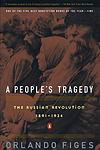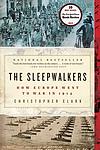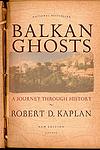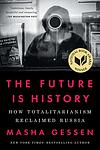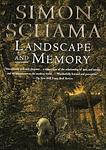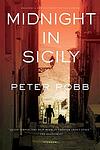The Greatest "Nonfiction, European History" Books Since 1970
Click to learn how this list is calculated.
This list represents a comprehensive and trusted collection of the greatest books. Developed through a specialized algorithm, it brings together 305 'best of' book lists to form a definitive guide to the world's most acclaimed books. For those interested in how these books are chosen, additional details can be found on the rankings page.
Genres
European History is a category of books that focuses on the historical events, people, and cultures of Europe. It covers a wide range of topics, including the ancient civilizations of Greece and Rome, the Middle Ages, the Renaissance, the Enlightenment, and the modern era. This category of books explores the political, social, economic, and cultural developments that have shaped Europe over the centuries, from the rise and fall of empires to the impact of wars and revolutions. It provides readers with a deeper understanding of the rich and complex history of Europe and its influence on the world.
Countries
Date Range
Reading Statistics
Click the button below to see how many of these books you've read!
Download
If you're interested in downloading this list as a CSV file for use in a spreadsheet application, you can easily do so by clicking the button below. Please note that to ensure a manageable file size and faster download, the CSV will include details for only the first 500 books.
Download-
51. Lords of Finance: The Bankers Who Broke the World by Liaquat Ahamed
The book offers an in-depth analysis of the events leading up to the Great Depression from the perspective of four central bankers from the United States, Britain, France, and Germany. The author argues that these individuals, through their decision-making and policies, inadvertently contributed to the economic turmoil of the 1930s. The book provides a historical examination of the global financial system, monetary policy, and the role of central banks, ultimately highlighting the human factor in economic catastrophes.
The 7930th Greatest Book of All Time -
52. The Meaning of Hitler by Sebastian Haffner
This book provides an insightful analysis of Adolf Hitler's life, his rise to power, and the devastating impact of his rule. It delves into Hitler's ideology, his strategies, and the psychological factors that contributed to his becoming one of history's most infamous dictators. The book also critically examines the factors that allowed Hitler's rise and the world's response, offering a comprehensive understanding of this dark chapter in human history.
The 7964th Greatest Book of All Time -
53. Gulag: A History by Anne Applebaum
"Gulag: A History" provides an in-depth historical account of the Soviet Union's forced labor camp system, known as the Gulag. The book explores the inception of these camps during the reign of Vladimir Lenin, their expansion under Joseph Stalin, and their eventual decline and closure. It also delves into the daily lives of the prisoners, their hardships, and the brutal conditions they endured. The book is based on a wealth of archival material, personal interviews, and memoirs, offering a comprehensive understanding of one of the darkest periods in human history.
The 8076th Greatest Book of All Time -
54. A Peace To End All Peace by David Fromkin
The book provides a detailed historical analysis of the Middle East from the onset of the First World War through to the early 1920s, focusing on how the decisions and actions of European powers, particularly Britain, led to the dismantling of the Ottoman Empire and the arbitrary redrawing of borders. It explores the diplomatic intrigues, strategic considerations, and often conflicting interests that shaped the modern Middle East, leading to a legacy of turmoil and conflict. The narrative critically examines the consequences of foreign intervention and the imposition of artificial state boundaries, shedding light on the origins of many of the region's ongoing struggles.
The 8118th Greatest Book of All Time -
55. A People's Tragedy by Orlando Figes
"A People's Tragedy" is an in-depth exploration of the Russian Revolution from 1891 to 1924. The book offers a comprehensive study of the Revolution's roots, its progression, and its aftermath, from the famine that gripped Russia in the 1890s, through the abdication of Tsar Nicholas II, to the establishment of the Bolshevik regime and the death of Lenin. The author uses a broad range of sources, including personal letters, diaries, and government documents, to present a detailed, humanized view of the Revolution's impact on everyday individuals, bringing to life the experiences of peasants, workers, soldiers, and intellectuals.
The 8141st Greatest Book of All Time -
56. Apollo’s Angels: A History Of Ballet by Jennifer Homans
"Apollo's Angels: A History of Ballet" by Jennifer Homans is a comprehensive and fascinating exploration of the history of ballet, tracing its origins in the French courts of the 17th century to its modern-day global prominence. Homans delves into the cultural and social contexts that shaped ballet over the centuries, examining the roles of gender, politics, and artistic innovation. She also provides insightful analyses of the most important ballets and choreographers throughout history, highlighting their contributions to the art form. A must-read for anyone interested in the history of dance and the arts.
The 8152nd Greatest Book of All Time -
57. Collapse by Jared Diamond
"Collapse" is an exploration of why certain societies throughout history have thrived while others have deteriorated and collapsed. The book delves into environmental problems, climate change, rapid population growth, and unwise political decisions as factors that contribute to the downfall of a civilization. The author uses examples from history such as the Mayans, the Vikings in Greenland, and modern examples like Rwanda and Haiti, to illustrate his points. It serves as both a historical analysis and a warning for modern societies to learn from the past in order to avoid a similar fate.
The 8227th Greatest Book of All Time -
58. German History 1800–1918 by Thomas Nipperdey
This book offers an in-depth and comprehensive examination of German history from 1800 to 1918. It delves into the political, social, and cultural transformations that occurred during this period, exploring the rise of nationalism, the impact of industrialization, the evolution of the German states, and the lead-up to the First World War. The author provides detailed analysis of key events, figures, and movements, weaving a rich tapestry of the forces that shaped modern Germany.
The 8334th Greatest Book of All Time -
59. A History of the World in 100 Objects by Neil MacGregor
This book offers a unique perspective on world history, telling the story of humanity through the examination of 100 man-made objects. The author, a museum director, uses items from the British Museum, ranging from a 2 million-year-old Olduvai stone cutting tool to a contemporary credit card, to explore various themes such as trade, religion, art, science, and politics. The book provides a fascinating lens through which to view the evolution of human civilization.
The 8359th Greatest Book of All Time -
60. The Sleepwalkers: How Europe Went To War In 1914 by Christopher Clark
"The Sleepwalkers" by Christopher Clark is a comprehensive account of the events leading up to World War I. The book argues that the war was not caused by any one nation or individual, but rather a combination of factors including nationalism, alliances, and miscommunication. Clark explores the complex political landscape of Europe in the early 20th century and the actions of key players such as Kaiser Wilhelm II and Archduke Franz Ferdinand. The book provides a detailed analysis of the events leading up to the war and challenges traditional narratives of blame and responsibility.
The 8382nd Greatest Book of All Time -
61. Balkan Ghosts by Robert D. Kaplan
"Balkan Ghosts" is a vivid travelogue that delves into the complex history, politics, and culture of the Balkan Peninsula. Through a series of journeys in the late 20th century, the author explores the tumultuous past and present of this region, providing insights into the ethnic conflicts and nationalistic fervor that have frequently erupted into violence. The book offers a personal and historical exploration of several Balkan countries, shedding light on how the shadows of past empires, wars, and political regimes continue to influence the modern identities and conflicts of these nations.
The 8387th Greatest Book of All Time -
62. Empire Of Cotton: A Global History by Sven Beckert
"Empire of Cotton" by Sven Beckert is a comprehensive global history of cotton, exploring its impact on the world economy, politics, and society from the 18th century to the present day. Beckert argues that cotton played a crucial role in the development of capitalism, colonialism, and imperialism, and that its production and trade were intimately linked to the exploitation of labor, the growth of slavery, and the rise of industrialization. The book offers a fascinating and thought-provoking perspective on the complex and often violent history of cotton and its enduring legacy in the modern world.
The 8595th Greatest Book of All Time -
63. The First Day On The Somme by Martin Middlebrook
"The First Day on the Somme" is a detailed historical account of the first day of the Battle of the Somme during World War I, specifically July 1, 1916. The book meticulously describes the planning and execution of the battle, highlighting the British Army's strategies and the harrowing experiences of the soldiers on the front lines. Through personal testimonies, diaries, and letters from the soldiers, the author reconstructs the day's events, providing insights into the human aspects of the battle, the immense casualties, and the overall impact on military tactics and morale. The narrative not only explores the military aspects but also delves into the emotional and psychological effects on the troops, making it a poignant study of one of the bloodiest days in military history.
The 8750th Greatest Book of All Time -
64. Stasiland by Anna Funder
This non-fiction work delves into the haunting legacy of the Stasi, the secret police of the former East Germany, through a series of personal narratives and interviews. The author explores the pervasive surveillance and oppression that characterized the German Democratic Republic, weaving together the stories of those who resisted the regime, those who worked for it, and those who were its victims. The book serves as a poignant examination of the human spirit under the strain of totalitarianism, revealing the scars left by a society where privacy was eradicated and trust was a commodity few could afford.
The 9078th Greatest Book of All Time -
65. The Great Leveler : Violence And The History Of Inequality From The Stone Age To The Twenty First Century by Walter Scheidel
This book delves into the historical patterns of inequality, arguing that significant reductions in inequality have only ever been brought about by cataclysmic events, which the author terms as the "Four Horsemen": war, revolution, state collapse, and plague. Through a comprehensive examination of societal structures from the Stone Age to the modern era, it presents a compelling case that peaceful reforms have rarely led to lasting decreases in inequality. The work challenges readers to confront the uncomfortable reality that significant improvements in equality have often been forged in the crucible of immense human suffering, thereby questioning the prospects for achieving future equality without such extreme catalysts.
The 9341st Greatest Book of All Time -
66. The Club by Leo Damrosch
"The Club" by Leo Damrosch is a non-fiction book that explores the lives and friendships of a group of influential men in 18th century England known as the "The Club". The members of this group included notable figures such as Samuel Johnson, Edmund Burke, and Joshua Reynolds. Through their meetings and discussions, they shaped the intellectual and cultural landscape of their time, and their legacy continues to influence modern society. The book provides a fascinating insight into the lives of these men and the impact they had on the world around them.
The 9454th Greatest Book of All Time -
67. The Future Is History: How Totalitarianism Reclaimed Russia by Masha Gessen
This book provides a deeply researched examination of the resurgence of totalitarianism in Russia, focusing on the lives of four individuals born at what promised to be the dawn of democracy. The book explores how, after the fall of the Soviet Union, instead of moving towards a democratic society, Russia has seen a rise in a new form of totalitarianism under its current leadership. It delves into the psychological shift in the Russian populace, the government's use of homophobia as a method of control, and how the internet and social media have been weaponized for political purposes.
The 9642nd Greatest Book of All Time -
68. Caravaggio by Andrew Graham Dixon
This book provides an in-depth exploration of the life and work of the revolutionary Italian painter known for his dramatic use of light and shadow, which came to define the Baroque style of painting. The biography delves into the artist's tumultuous personal life, marked by violent encounters and a temper as fiery as his groundbreaking artistic talent. Through meticulous research, the author reconstructs the painter's journey from his humble beginnings to his rise to fame and his ultimate tragic downfall, offering insights into his masterpieces and his enduring influence on the art world.
The 9647th Greatest Book of All Time -
69. 1,000 Years Of Annoying The French by Stephen Clarke
This book is a humorous and informative exploration of the longstanding rivalry between England and France, delving into a millennium's worth of historical conflicts, cultural misunderstandings, and entertaining anecdotes. The author examines key events and figures that have shaped the relationship between the two nations, from the Norman Conquest to modern-day politics, all while debunking myths and offering witty insights into how these two European neighbors have continued to eye each other with a mix of animosity and fascination. Through its engaging narrative, the book reveals the complexities and idiosyncrasies of Anglo-French history, showcasing how the past thousand years have been marked by both mutual annoyance and grudging admiration.
The 9647th Greatest Book of All Time -
70. Jerusalem by Simon Sebag Montefiore
The book is a comprehensive and vivid historical narrative that delves into the rich and tumultuous past of one of the world's most contested and sacred cities. Spanning thousands of years, the work chronicles the city's inception, its central role in the development of three major monotheistic religions, and the endless series of conflicts and transformations it has undergone. Through a tapestry of personal stories, political intrigue, and religious fervor, the author weaves together a detailed account of Jerusalem's multifaceted history, revealing how this unique city has been revered, fought over, and cherished by countless generations.
The 9715th Greatest Book of All Time -
71. The Oldest Dead White European Males by Bernard Knox
The book is a collection of essays that explore the enduring relevance and influence of ancient Greek literature and thought on modern Western culture. The author, a respected classical scholar, argues against the dismissal of Greek classics as irrelevant artifacts of a dead culture, instead highlighting their profound impact on contemporary intellectual, political, and artistic life. Through insightful analysis, the work demonstrates how ancient texts such as those of Homer, Sophocles, and Thucydides continue to offer valuable insights into human nature and society, advocating for the continued study and appreciation of these foundational works.
The 9726th Greatest Book of All Time -
72. The Reformation by Diarmaid MacCulloch
"The Reformation" is a comprehensive history of the European Reformation, which took place in the 16th and 17th centuries. It explores the religious revolution that led to the split of the Western Church into Protestant and Catholic factions, and how this division influenced the development of Western civilization. The book delves into the political, cultural, and social impacts of the Reformation, providing an in-depth look at its key figures, such as Martin Luther and John Calvin, and the profound changes they brought about in society.
The 9768th Greatest Book of All Time -
73. Landscape And Memory by Simon Schama
"Landscape and Memory" is a profound exploration of how landscapes have shaped human culture and how human culture, in turn, shapes our views of nature and the environment. The book delves into the symbolic and mythological significance of different natural elements such as forests, rivers, and mountains across various cultures and historical periods. Through a rich tapestry of narratives, art, and personal reflection, the author argues that our perceptions of nature are deeply intertwined with cultural memories and the collective imagination, revealing how these landscapes are not just physical settings but also landscapes of the mind, imbued with historical and emotional resonance.
The 9806th Greatest Book of All Time -
74. Midnight In Sicily by Peter Robb
"Midnight in Sicily" explores the rich and tumultuous history, culture, and politics of Sicily from the 1970s through the 1990s. The narrative delves into the island's deep-rooted Mafia presence, its influence on social and political spheres, and the courageous efforts of those who have stood against its power. Through a blend of travelogue, cultural commentary, and political analysis, the book paints a vivid portrait of Sicilian life and the complex web of corruption, art, history, and delicious cuisine that defines it. The author's personal experiences and observations provide a compelling backdrop to the broader historical and cultural discussions, making the work both an informative and engaging read.
The 9853rd Greatest Book of All Time -
75. Rough Crossings by Simon Schama
"Rough Crossings" is a historical account of the experience of African American slaves during the American Revolution. It focuses on the British promise to grant freedom to slaves who joined their cause, and the subsequent journey of these former slaves to Nova Scotia and Sierra Leone. The book explores the complexities of this period in history, questioning the traditional narrative of the American Revolution and shedding light on the struggle for freedom and equality by African Americans.
The 9869th Greatest Book of All Time
Reading Statistics
Click the button below to see how many of these books you've read!
Download
If you're interested in downloading this list as a CSV file for use in a spreadsheet application, you can easily do so by clicking the button below. Please note that to ensure a manageable file size and faster download, the CSV will include details for only the first 500 books.
Download



